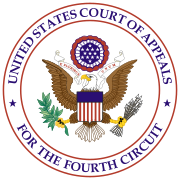| This page's infobox may require expansion, verification, or otherwise need cleanup. Please make sure that the infobox meets Misplaced Pages's guidelines for infoboxes. There might be relevant comments on the talk page. You may also want to view the infobox template page to view the full parameter list and read guidance on usage of that infobox. (March 2023) |
| Backun v. United States | |
|---|---|
 | |
| Court | United States Court of Appeals for the Fourth Circuit |
| Full case name | Backun v. United States |
| Decided | June 10, 1940 |
| Citation | 112 F.2d 635 |
| Court membership | |
| Judges sitting | John J. Parker, Morris Ames Soper, Armistead Mason Dobie |
| Case opinions | |
| Majority | Parker, joined by Dobie |
| Concurrence | Soper |
Backun v. United States, 112 F.2d 635 (4th Cir. 1940), is a criminal case that held that the mental element for complicity in a crime is that the accessory had knowledge that aiding or abetting would facilitate the criminal act of the principal, and did not require the accomplice have the same purpose as the principal. The case is contrasted with the Second Circuit case of United States v. Peoni, which held the opposite.
References
- Backun v. United States, 112 F.2d 635 (4th Cir. 1940).
 This article incorporates public domain material from this U.S government document.
This article incorporates public domain material from this U.S government document.
- ^ John Kaplan, Robert Weisberg, Guyora Binder, Criminal Law - Cases and Materials, 7th ed. 2012, Wolters Kluwer Law & Business, page 761. ISBN 978-1-4548-0698-1
This article relating to case law in the United States or its constituent jurisdictions is a stub. You can help Misplaced Pages by expanding it. |
This article about a criminal law topic is a stub. You can help Misplaced Pages by expanding it. |